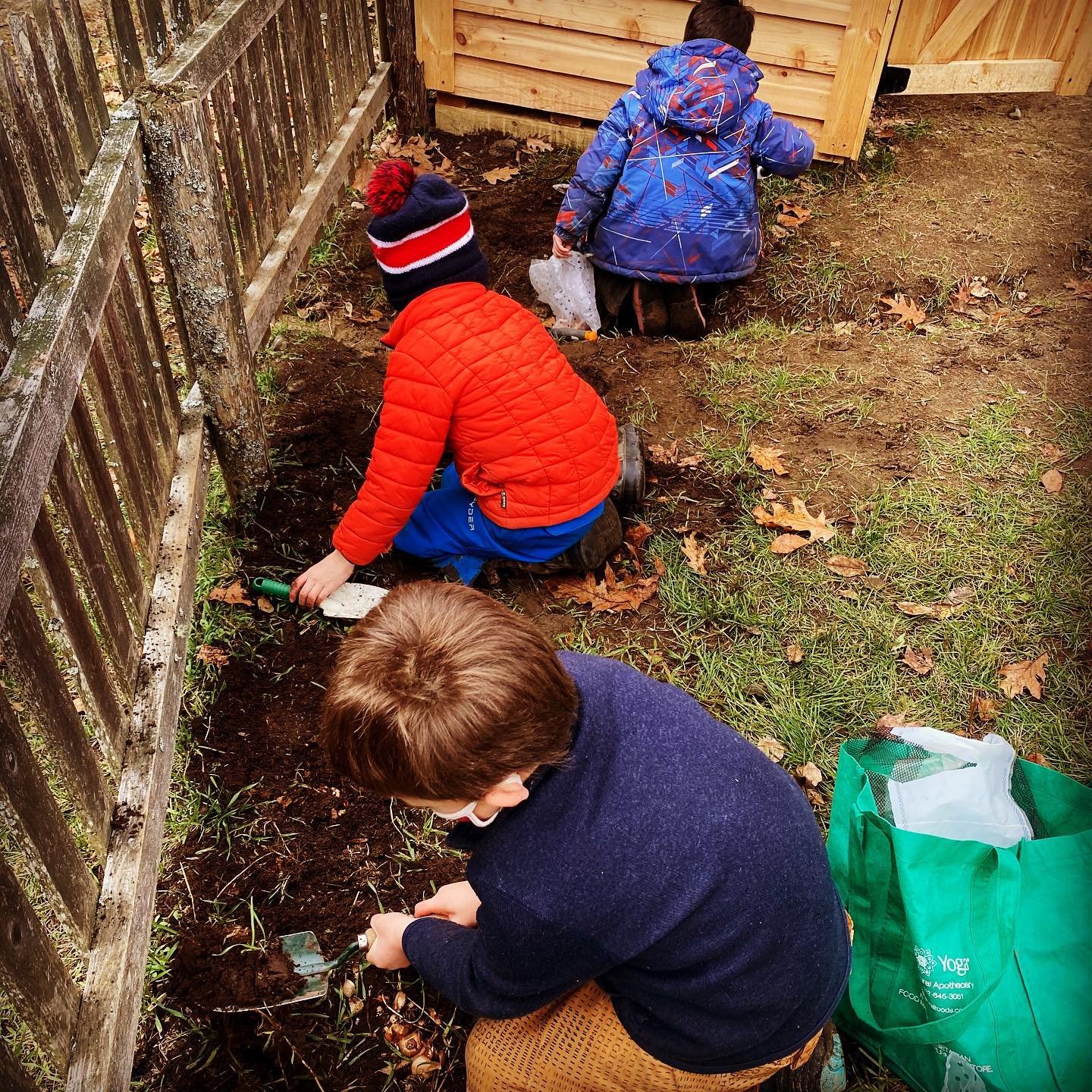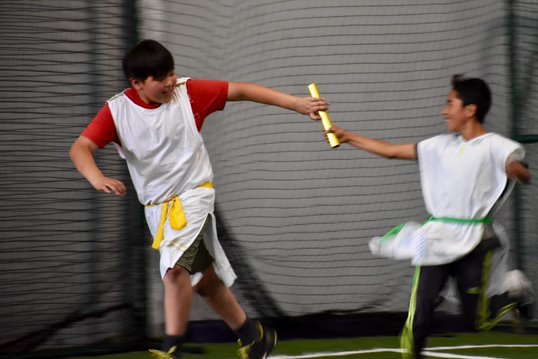Waldorf Whole Child Education: Upper Valley Waldorf School encourages students to develop in a well-balanced way.
The Waldorf curriculum exposes students to a wide variety of subjects and activities, encouraging them to develop into well-rounded individuals through lessons that engage them physically, socially, emotionally, intellectually, and ethically.
At the Upper Valley Waldorf School, we address each of these emerging capacities through multi-faceted, multi-sensory learning experiences that embrace whole child learning.
A compelling element of Waldorf education is the way its teachers recognize how children make sense of the world in different ways at each stage of development. Consequently, teachers bring a rich variety of developmentally appropriate lessons and activities that visibly engage the children in their care on the physical, emotional, social, and intellectual levels. Spiritual and ethical learning are woven in with the other aspects in a seamless way through stories and festivals to build a beautiful tapestry of learning. At each stage of childhood, Waldorf education skillfully and creatively offers whole-child learning!
Movement, Social Engagement, and Physical Development
In Waldorf schools, we weave movement into our academic lessons because we know it enhances children’s ability to form concepts and develop their thinking capacities.
In grade one you might see children tossing beanbags in a phonemic awareness game. Or they could be rhythmically stamping as they learn to skip-count -- a precursor to memorizing times-tables.
In grades three and four you could find students chanting times tables in a clapping game with a partner. You might see the teacher swinging a large jump rope as students run in to jump and back out again, all while chanting a times-table number family.
These activities in the early grades not only enhance academic learning, but contribute to physical strength, flexibility, and coordination. They are also inherently social in nature, requiring patience, perseverance, and encouragement of classmates.
In the middle and upper grades, movement provides opportunities to learn socially with one’s classmates, while simultaneously providing invigorating exercise that awakens children for intellectual learning. A sixth grader, who must jump into two ropes moving in opposite directions in “double-dutch” jump rope develops focus, courage, and resilience. Rarely does a child succeed on the first try, but success breeds confidence. Returning to “double-dutch” jumping as an 8th grader, in a more complex scenario, with a classmate or two jumping at the same time, requires increased social awareness, cooperation, coordination, stamina, and good will!
Physical movement in the form of outdoor, unstructured play is an important part of education at the Upper Valley Waldorf School from early childhood through eighth grade. In our early childhood classes, daily activities such as gardening, climbing, running, and circle games provide pre-academic preparatory work for the requirements children will encounter as grade students – things we might take for granted, like sitting upright at a desk, or gripping a pencil properly for effective and beautiful handwriting.
As children move through the grades, they continue to have unstructured time for play, often inspired imaginatively by the stories, legends, and fairy tales they have heard from their teachers in school. Structured movement and games within the daily curriculum challenge students to refine both their fine and gross motor skills.
Beeswax modeling, clay modeling, knitting, sewing cross-stitch pincushions, carving a bowl or a spoon from a piece of wood – all of these activities are part of the Waldorf curriculum over the course of eight years in the grades.
Each of these activities invites children to join their thinking capacities with physical skills to create something beautiful and emotionally satisfying. This is whole child learning!
Social-Emotional Learning Throughout Childhood
Social-emotional learning is woven into every aspect of Waldorf education and illustrates yet another way whole-child learning occurs at the Upper Valley Waldorf School.
Since young children learn so strongly through imitation, teachers model appropriate social behavior in how they speak and act around the children, as well as how they interact with adults.
Play is another critically important tool for social-emotional development, especially during early childhood and the lower grades. Through play, children learn to cooperate. To share. To negotiate. To resolve conflict. Teachers are present and engaged, ready to step in if needed. But they also recognize the important social learning that is happening as children learn to work, play, and simply be together.
Games provide social-emotional learning opportunities at every stage of childhood. Every grade at the Upper Valley Waldorf School incorporates games into the curriculum.
You might look into a French classroom and see children learning French vocabulary playing Le Gros Chat (The Fat Cat) as they tip-toe from one corner of the classroom to another. Or you might find sixth graders practicing fractions and common denominators through a rousing game of Steal the Bacon. Whatever the game, children participate with joy and enthusiasm, learn to participate in a social group, encourage others, and accept disappointment gracefully.
Stories are a foundational part of the Waldorf curriculum and provide another venue for social-emotional learning. The ethical and moral development of the human being is a critical part of social-emotional learning and an important part of whole child learning at the Upper Valley Waldorf School.
Every grade has a rich array of stories for the teacher to tell that provide learning content in the social-emotional realm, as well as the academic, ethical, and spiritual realms. Children can explore different emotions through the experiences of different characters in the stories. For example, in third grade the children explore the experiences of betrayal and kindness in the Hebrew story of Joseph and his coat of many colors, or courage and justice through the story of David and Goliath. In fifth grade children uncover the profound polarity of good and evil as depicted in the Persian myths through the characters of Ahura Mazda and Ahriman. In eighth grade 20th Century History students learn from the biographies of Mahatma Gandhi or Martin Luther King, Jr., the kind of inner courage and fortitude that is required to stand up for justice and equality.
The experience of stories is taken a step further for children in the Upper Valley Waldorf School through theater work, as each class works together to put on a play.
Doing a theater production gives children the opportunity to practice a wide variety of social-emotional skills. Children learn to experience the emotions of the characters they are taking on in the class play. The class must learn how to work together towards a common goal. Cooperation, self- management, and responsible decision making come to the fore as children learn that it takes every one of them, learning their lines and doing their part, for the play to work.
Each element of social-emotional learning in Waldorf education contributes to whole child learning!
Measuring the Success of Whole Child Learning
To assess students in a whole child educational model, Waldorf teachers look at each child individually and assess them in a variety of ways to see how they are progressing physically, emotionally, and academically. They evaluate how that child has grown in each area over the year, and often over many years, as our teachers stay with a class for multiple years.
When a teacher can stay with the students as they move from one grade to the next, an in-depth relationship between the student, the family, and the teacher develops, allowing for a profound understanding of each child.
With teacher training that focuses very strongly on child development and whole child education, our teachers learn to see what each child needs to fully grow and develop in all aspects of learning.
The ultimate measure of success of whole child education at the Upper Valley Waldorf School is children who are not just ready intellectually for high school and college, but who are also well prepared for life itself. Our alumni are shining examples of the ways that Waldorf education’s whole child approach prepares confident, creative and caring human beings, who have the skills and capacities they need to pursue their chosen paths and succeed in making a difference.








